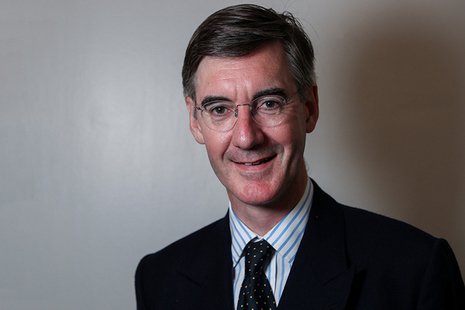Oxford, Vietnam and the business of philanthropic risk
The £155m donation to the University of Oxford by Vietnamese business woman Nguyen Thi Phuong Thao which will lead to the renaming of the University’s Linacre College in her honour places a spotlight on how many of the leading universities fundraise.
This one was bound to cause a stir. Oxford is the jewel in the crown of British higher education and the renaming of one its colleges – a rare event but not without precedence – would beg questions about the role of overseas money in both influencing British higher education and fundamentally changing the character of one of the nation’s great institutions. So let’s unpick some of the issues here:
Andrew Wigley talking to GB News about the £155m Vietnamese gift to Oxford © GB News
First, the naming and re-naming of chairs, buildings and colleges are part of the fundraisers’ armoury. Incentives are often attached to persuade people to encourage donors to part with their money. It now seems that the entry rate for having an Oxford College re-badged with your name is somewhere north of £150m. This does give rise to the argument that this is less a donation and more of a financial transaction. It devalues the donation and undermines what would otherwise be viewed as an altruistic act.
However, the University – and its fundraising department – would have developed this “proposition” as part of a shopping list which they would have had up their sleeve when they set about targeting this prospective major donor. There is fundamentally nothing wrong in an institution selling off its assets in return for raising funds, and universities have been doing this for centuries.
In 1610 Mrs Wadham wanted to establish a college in memory of her recently deceased husband. The University welcomed the offer of funding and Wadham College was established. It was a similar story for other colleges at both Oxford and Cambridge. In the US, Vanderbilt University was founded and named after an initial endowment from the shipping and rail magnate Cornelius Vanderbilt. In 1901 Rockefeller University in New York was founded and named after John D. Rockefeller who provided its endowment. There’s nothing new in names being attached to large donations.
What’s new in this story is not that the money is coming from overseas, necessarily, but from, well, a surprising source - Vietnam. This tells us a couple of things.
Oxford is not just a British institution, it carries international prestige and caché. So much so, that a Vietnamese business women wants to have her name associated with it. For £155m she’s secured a pretty good deal, it seems to me. Oxford is no stranger to taking money from overseas sources. In 2010 it accepted a £75m donation from the Anglo Ukrainian billionaire Sir Len Blavatnik. That funding went to the establishment of the University’s School of Government. In 2019 the US billionaire Stephen Schwarzman made a donation of £150m for the study of humanities. The difference on this occasion is that the University has ventured into new territory by re-naming a college to secure this investment. Moreover, it comes from a donor based in communist Vietnam. The decision warrants the scrutiny its getting.
Rt Hon Jacob Rees Mogg, Lord President of the Privy Council
In accepting the money and renaming Linacre Oxford will have gone through a process of due diligence – not transparent – and the University’s board, including its Chief Executive, will have been satisfied that the money will not be tainted and will not bring the University in to disrepute.
But is that the end of this? No, Britain’s Privy Council, an arm of government which advises on matters of national importance, will have to give approval for the re-naming. This is likely to cause the Government a bit of a headache.
On the one hand, this Government is very keen to attract inward investment and foster an open Britain policy. On the other hand, it has to make a call whether it is in the national interest to be changing the name of this Oxford college. They will be looking at what precedence this likely to set. It seems entirely reasonable to me that the Privy Council should satisfy itself that there is no long term undue advantage, damage or influence caused by accepting this investment and allowing a change in the name of this Oxford college. Afterall, Oxford will have done its due diligence through the lens of the university. But if we accept that Oxford is of strategic national importance, the Privy Council must look at this through the lens of the national interest. I suspect we haven’t heard the end of this debate.
The other aspect this story throws up is the international character of university fundraising and philanthropy. Fundraisers in the UK are scouting high net worth individuals all over the world including, it seems, Vietnam. Long gone are the days that fundraisers would only like for funding in their local communities. Universities - especially those of the stature of Oxford - have international reach and connectivity. It is logical, therefore, that they align their fundraising efforts with their network of connections, alliances and partnerships. But that growing internationalism does make the business of assessing risk tougher.
Navigating reputational risk associated with accepting very large donations is challenging. Higher education institutions will want some reassurance that incoming donations will not hold an influence over academic standards or independence. But let’s put this furore into some perspective.
Thousands upon thousands of major donors give to universities each year. Rarely does it present an issue. They give generously, often discreetly, and they choose higher education as it is widely viewed as the key to both individual opportunity and achievement, and as an engine of national economic prosperity. Moreover they are very good places to park your philanthropy. They have good management systems, good governance and are well placed to ensure that the money goes to the purpose for which it has been donated.
According to our research 66 out of the top 100 in the Sunday Times Rich List have given to UK universities making a remarkable contribution to that country’s higher education. That’s a cause of great celebration and a demonstration of how philanthropy can strengthen the pursuit of education and the interests of a society.


